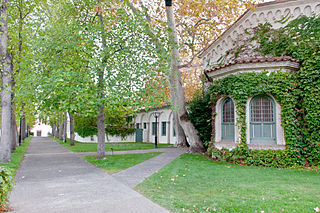
The United Arab Emirates is situated in the Middle East and West Asia, bordering the Gulf of Oman and the Persian Gulf, between Oman and Saudi Arabia; it is at a strategic location along the northern approaches to the Strait of Hormuz, a vital transit point for world crude oil. The UAE lies between 22°50′ and 26° north latitude and between 51° and 56°25′ east longitude. It shares a 19 km (12 mi) border with Qatar on the northwest, a 530 km (330 mi) border with Saudi Arabia on the west, south, and southeast, and a 450 km (280 mi) border with Oman on the southeast and northeast.

The United Arab Emirates (UAE), or simply the Emirates, is a country in West Asia, in the Middle East, at the eastern end of the Arabian Peninsula. It is a federal, elective monarchy composed of seven emirates, with Abu Dhabi as its capital. It shares land borders with Oman to the east and northeast, and with Saudi Arabia to the southwest; as well as maritime borders in the Persian Gulf with Qatar and Iran, and with Oman in the Gulf of Oman. As of 2024, the UAE has an estimated population of over 10 million, of which 11% are Emiratis; Dubai is the most populous city and is an international hub. Islam is the official religion and Arabic is the official language, while English is the most spoken language and the language of business.

Women's colleges in higher education are undergraduate, bachelor's degree-granting institutions, often liberal arts colleges, whose student populations are composed exclusively or almost exclusively of women. Some women's colleges admit male students to their graduate schools or in smaller numbers to undergraduate programs, but all serve a primarily female student body.

The Catholic Church in the United Arab Emirates is part of the worldwide Catholic Church, under the spiritual leadership of the Pope in Rome.

The Apostolic Vicariate of Southern Arabia is an apostolic vicariate of the Catholic Church with territorial jurisdiction for Oman, United Arab Emirates and Yemen.
Parliamentary elections were held for the first time in the United Arab Emirates between 16 and 20 December 2006 to elect half of the 40 members of Federal National Council. Voting took place in Abu Dhabi and Fujairah on 16 December, in Dubai and Ras Al Khaimah on 18 December, and in Sharjah, Ajman and Umm Al Quwain on 20 December.

The Beaconhouse School System (BSS), established in 1978, is a private preparatory school system in Pakistan. Today, Beaconhouse has over 146 campuses in major cities across Pakistan. BSS also operates independent divisions in Belgium, Malaysia, Oman, the Philippines, Thailand, the UAE and the United Kingdom. Its activities extend beyond education in some countries.

The Trucial States, also known as the Trucial Coast, the Trucial Sheikhdoms, Trucial Arabia or Trucial Oman, was a group of tribal confederations to the south of the Persian Gulf whose leaders had signed protective treaties, or truces, with the United Kingdom between 1820 and 1892.
Richmond and Hillcroft Adult Community College is a further education college located in Richmond and Surbiton in Greater London. It was established in 2017 by a merger between Richmond Adult Community College and the specialist Hillcroft College.

The 2013 FIFA U-17 World Cup was the fifteenth tournament of the FIFA U-17 World Cup. The tournament was held in the United Arab Emirates from 17 October to 8 November. Nigeria won the tournament after defeating Mexico 3–0 in the final, claiming the country's fourth title. Sweden won the bronze with a 4–1 victory over Argentina in the third-place play-off match.

The Higher Colleges of Technology(HCT) (Arabic: كليّات التقنيّة العليا) is a public institute of technology with 16 campuses and facilities throughout the United Arab Emirates. Founded in 1988 by Sheikh Nahyan bin Mubarak al-Nahyan, it is the largest applied higher educational institution in the country.







